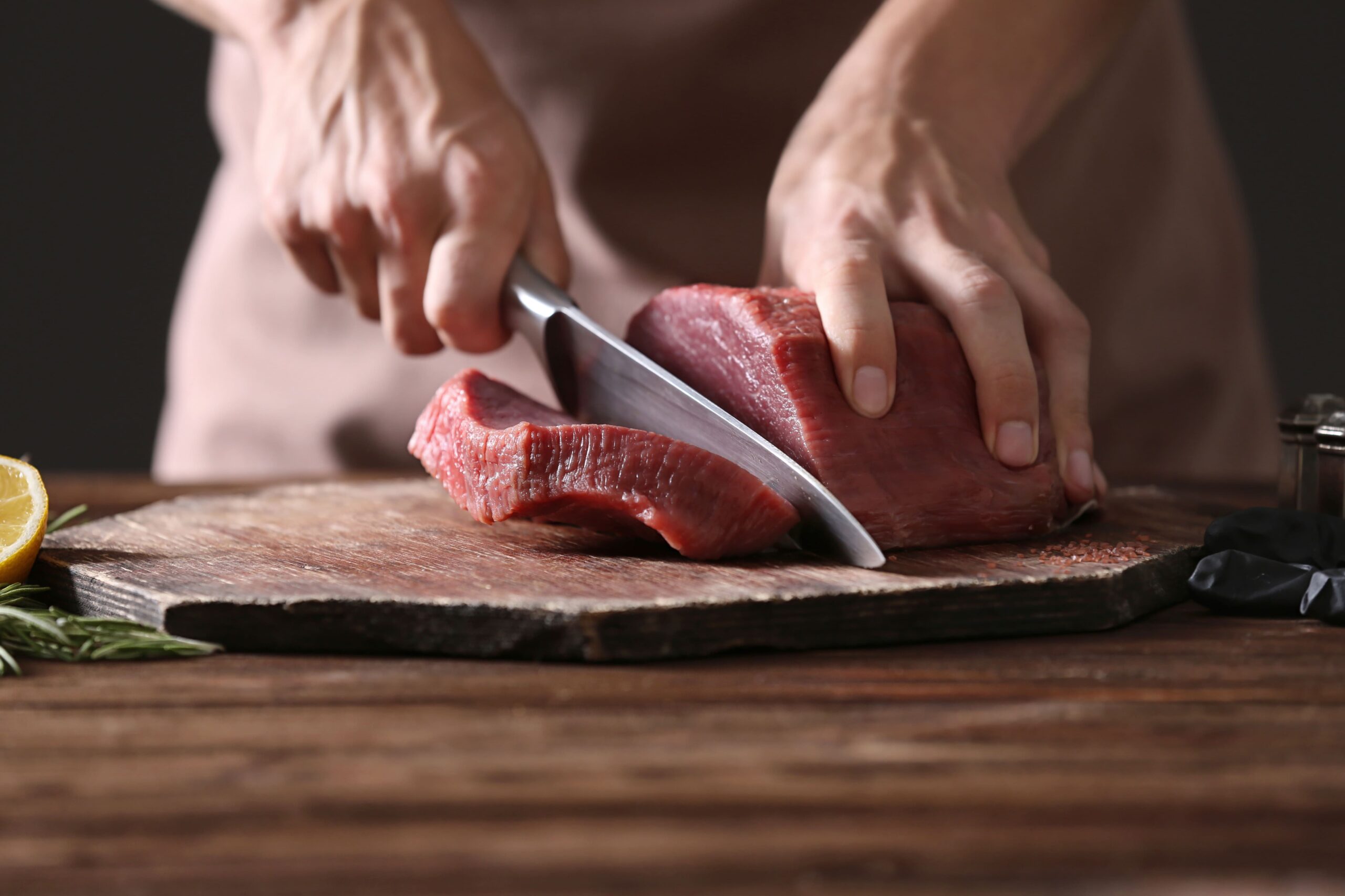
INTERNATIONALISATION, 4% VAT AND ERADICATION OF PSA: THE NEEDS OF THE CHARCUTERIE SUPPLY CHAIN
On June 15th, in the presence of important national representatives and experts in the agri-food, economic and health sector, the participatory and intense round table “THE PROSPECTS OF THE CURED MEATS SUPPLY CHAIN, BETWEEN ECONOMIC CHANGES AND CHALLENGES OF SUSTAINABLE DEVELOPMENT” organized by ASSICA (Industrial Association of Meats and Cured Meats) as part of the Annual Assembly of the Association and among the activities of the project “Trust Your Taste, CHOOSE EUROPEAN QUALITY” www.trustyourtaste.eu. It was three hours of intense discussion with technicians and politicians, to find solutions and shared paths that allow the sector to react to the current difficult situation, evidenced by the 2022 data (-2.2% in production volumes and -2.1% in apparent per capita consumption in Italy) and to focus on priorities, above all such as restoring margins to companies and combating African Swine Fever.
In his first, powerful and pragmatic speech as president of the Association, Pietro D’Angeli identified the main challenges of the sector and indicated possible concrete interventions available to the Government to give an immediate signal to companies. “We strongly call for a reduction in VAT on our products from 10 to 4 percent,” he said, “a measure that would give oxygen both to producers, whose margins are now compressed as never before, and to consumers, whose purchasing power is increasingly reduced. It is a measure that could be adopted immediately, putting our sector on an equal footing with other agri-food sectors where 4% VAT is already applied.” As a second indication, he suggested internationalization as a possible way to give companies breathing space in the short term. “Made in Italy food is a source of pride and a pillar of the national economy, and the cured meats sector is decisive. Our companies’ commitment to growth and internationalization knows no setbacks. On the supply side, we have continued to expand our ranges and innovate products to respond to the affirmation of consumer trends that are increasingly attentive to authenticity, a balanced and varied diet and sustainability, while respecting our great food tradition. We must encourage internationalization, especially of SMEs, helping them to grow in order to seize the great untapped potential of our exports and respond to the desire to eat Italian that is widespread all over the world.”
An appeal promptly relaunched by Min. Adolfo Urso Ministry of Enterprise and Made in Italy (MIMIT), who spoke at the conference, who recalled the new phase of industrial development policy that the country is facing and the good growth prospects for Italy. “The agro-industrial table that we have set up with MASAF in a synergistic way and where, in addition to ASSICA, the associations representing the entire sector sit, represents the ideal institutional context to develop a supply chain plan that, together with the other sector plans, gives a new industrial perspective to the country. Always in agreement with Minister Lollobrigida we are also carrying out an interministerial decree that also directly concerns the meat sector and delicatessen products, so that the classic slogan of products made in Italy “beautiful, good and well made” is now also added “increasingly sustainable”, on an ethical and environmental level – he recalled.
In response to the requests for action on African Swine Fever, the Hon. Mirco Carloni, Chairman of the Agriculture Committee of the Chamber of Deputies, announced that a vote will be held this week on a motion on ASF for the revision of the current rules and tools, which unfortunately proved to be insufficient. In this regard, the outgoing President of ASSICA, Ruggero Lenti, recalled how it is “essential that the battle against the spread of ASF is fought not only on the eradication front and health barriers but also from a negotiation point of view, to reopen dialogue with countries that have currently unjustifiably closed imports to our products“. A clear priority for the Institutions: Ugo Della Marta, Director General of the Directorate for Hygiene and Food Safety and Nutrition (DGISAN) of the Ministry of Health, present at the round table, announced that relations with Japan have already been established and those with China are about to resume, so that they align with the policy already applied, for example, in the USA, giving the green light to imports of cooked and cured products and adhering to the principle of regionalisation. On the subject of ASF, Vincenzo Caputo, extraordinary commissioner for ASF, also spoke at the conference, who expressed his total willingness to collaborate with ASSICA and announced that a horizon of a maximum of 36 months has been given to eradicate the problem, and Pierdavide Lecchini, Director General of the Directorate of Animal Health and Veterinary Drugs (DGSA) of the Ministry of Health.
The conference was also an opportunity to present a preview of two important research commissioned by ASSICA. The first, organized by ISMEA – Institute of Services for the Agricultural and Food Market, is focused on the distribution of value along the supply chain. “The tension on the pig market is still quite high. Despite the progressive, albeit partial, decline in the prices of energy raw materials and the prices of some of the main components of food, the reduced availability of pork at European level continues to keep prices at high levels – explained Fabio del Bravo, Head of ISMEA’s Rural Development Services Directorate. “The increases in the prices of raw materials along the supply chain translate into a low margin of the various phases, as also emerges from the very first and partial results of a study on the value chain of Italian cured meats. The pilot project started with cooked ham, which accounts for almost a quarter of total retail spending on cured meats and with sales volumes increasing in 2022 despite rising prices. The analysis highlighted how the close connection between the results of one phase with those of the next determines the need for an increasingly strong interaction between the players in the definition of supply chain development strategies to safeguard the quality level of Italian cured meats, which is the element of distinctiveness at a global level”.
The second research, on the other hand, is dedicated to sustainability, a very topical theme, also evoked by Min. Urso, which has long been a central asset for the Association, in close synergy with IVSI (Istituto Valorizzazione Salumi Italiani): on the occasion of last year’s Annual Assembly, ASSICA had in fact presented its “Sustainability Program“, then selected in November 2022 by the European Commission and included in the list of European Code of Conduct on responsible food, business and marketing practices. This is also the context of the new questionnaire, which involved 37 member companies, developed and presented by Prof. Marco Frey and his team at Ergo, a spin-off of the Sant’Anna School of Advanced Studies in Pisa. President of the Global Compact Italy Foundation, a United Nations body within the Global Compact Program, Prof. Frey intervened to present the results: “Among the strengths to be noted is the increasingly widespread presence of corporate figures specifically dedicated to sustainability,” he commented. ” In addition, 90% of the responding companies have developed a supply chain traceability system that allows them to guarantee control and transparency along the entire value chain (about 60% of respondents) or along certain steps (about 30% of respondents). Among the areas for improvement, the most evident is the lack of a strategic approach to the implementation of the Sustainable Development Goals of a social nature, and the ability to communicate one’s commitment to environmental sustainability and the circular economy should also be better developed. Finally, the importance of the Association’s role in helping companies improve their sustainability profile emerged.” “We have done a lot, but not enough – commented Francesco Pizzagalli, president of IVSI, confirming that the commitment of the 2 associations on these issues will continue stronger than ever, guided by 3 pillars: vision, sharing and collaboration. On the subject of sustainability, Silvia Grandi, Directorate General for Circular Economy (EC), also spoke, congratulating ASSICA and IVSI for their support for the “made green in Italy” scheme and for the constant and concrete attention they dedicate to accompanying companies on a path of “true” sustainability.





